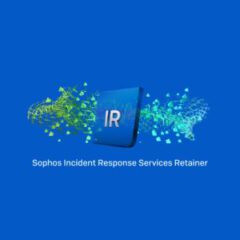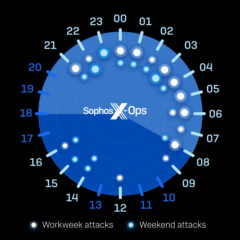Kaspersky’s Secur’IT Cup 2023: Unleashing Young Cybersecurity Innovators to Shape a Safer Digital Future
Young cybersecurity enthusiasts and students with a passion for creating a safer digital world are invited to participate in the Secur’IT Cup 2023, an international competition organized by Kaspersky. The event, now in its sixth year, encourages participants to tackle emerging security challenges posed by modern technologies and offers substantial rewards for top ideas and projects. 15 September 2023 – Kaspersky, a global...
Kaspersky Discovers Long-Running Linux Supply Chain Attack via Free Download Manager
Kaspersky has unveiled a long-running malicious campaign involving a supply chain attack on Linux systems, where cybercriminals distributed a backdoor via compromised versions of Free Download Manager software. Victims, located globally, unknowingly downloaded the tainted software from the official website, leading to data theft and potential breaches of sensitive information. 14 September 2023 – Kaspersky, the renowned...
Sophos Uncovers Cybercriminal Contests Fueling Innovation in Hacking Tactics
Sophos has uncovered a disturbing trend in cybercrime forums, where research contests are being used to inspire and refine new cyberattack methods and evasion techniques. These contests, which mirror legitimate security conferences, offer substantial rewards to winners, providing insights into the ever-evolving world of cybercriminal tactics. 12 September 2023 – Sophos, a global leader in cybersecurity services, has revealed the...
Sophos Launches Cutting-Edge AP6 Series for Advanced Wi-Fi 6 Access Points and Network Security
Sophos has introduced the innovative Sophos AP6 Series, marking a significant leap in remotely managed Wi-Fi 6 access points. Designed to meet the growing demand for scalable, remote Wi-Fi solutions in hybrid environments, this new offering addresses the rising number of connected devices and the proliferation of IoT systems. The AP6 Series, equipped with high-speed interfaces and Wi-Fi 6E support, modernizes wireless networks, while...
Visa’s Fall 2023 Threats Report: AI-Powered Phishing and Ransomware Surge Amidst Global Anti-Fraud Efforts
Visa’s Fall 2023 Biannual Threats Report reveals growing threats in the form of AI-powered phishing, enumeration attacks, and ransomware, despite a lower-than-expected overall global fraud rate. Visa proactively blocked $30 billion in potential fraud during the reporting period. 8 September 2023 – Visa Inc., a globally recognized leader in digital payments, has released its Biannual Threats Report for Fall 2023, shedding...
Sophos Unveils Cutting-Edge Incident Response Retainer Amid Escalating Cyber Threats
Sophos introduces the Sophos Incident Response Retainer, providing organizations with rapid access to fixed-cost incident response services and 45 days of 24/7 Managed Detection and Response (MDR). This service aims to address the shrinking adversary dwell time in the evolving cybersecurity landscape. 5 September 2023 – Sophos, the globally recognized leader in cybersecurity solutions, has introduced the groundbreaking Sophos...
How AI is being used by cybercriminals to launch APT attacks
Kaspersky reveals that AI is not limited to the creation of malicious software but is also employed throughout various stages of advanced cyberattacks, from reconnaissance to data exfiltration. The article highlights how AI can be used to craft convincing phishing messages, adapt malware behavior, enhance persistence techniques, and optimize data theft, emphasizing the importance of advanced security solutions, regular software...
AI’s Potential and Cybersecurity Concerns Amidst the Rise of ChatGPT
As AI, exemplified by ChatGPT’s impact, gains prominence, Kaspersky’s innovative Cyber Immunity concept addresses AI misuse concerns and fosters secure IT systems. The Asia-Pacific region leads the AI revolution with doubling AI spending by 2026, prompting Kaspersky to advocate for secure AI implementation to leverage its potential without compromising cybersecurity. 28 August 2023 – The rapid evolution of Artificial...
Sophos Active Adversary Report Reveals Decrease in Attacker Dwell Time and Escalation to Active Directory in 2023
Sophos’ “Active Adversary Report for Tech Leaders 2023” reveals a decrease in attacker dwell time, with swift escalation to Active Directory within 16 hours. The report underscores the importance of proactive threat monitoring and Managed Detection and Response (MDR) to counter evolving attacker strategies. 25 August 2023 – Sophos, a renowned global cybersecurity innovator, has unveiled its “Active...
Check Point Research Unveils Alarming 8% Rise in Global Cyberattacks Amidst Rising Ransomware Threats in 2023 Mid-Year Security Report
The 2023 Mid-Year Security Report from Check Point Research reveals an alarming 8% surge in global cyberattacks, paired with a rising ransomware threat that has witnessed evolving tactics and the emergence of new threat groups. The report underscores the urgency for organizations to adopt proactive cyber resiliency strategies and advanced security technologies to defend against the evolving threat landscape. 24 August 2023 –...
TechCreate’s Strategic Alliances and Recognitions Propel Cybersecurity Excellence and Innovation
TechCreate, a leading Payment and Managed Services Provider, is enhancing its market position through strategic partnerships, prestigious awards, and collaborations with academic institutions. The company’s commitment to cybersecurity innovation and education aligns with global industry trends and challenges. 24 August 2023 – TechCreate, a reputable Payment and Managed Services Provider, is solidifying its position in the...
Kaspersky Password Manager Introduces 2FA Support and Expands Browser Compatibility
Kaspersky Password Manager introduces robust security features, enabling users to store 2FA keys and generate one-time passwords. The expansion of browser compatibility and the dominance of mobile usage in password management underscore the growing need for secure solutions in safeguarding digital credentials. 17 August 2023 – In response to the escalating demand for enhanced digital security, Kaspersky Password Manager has...
Fortifying Mobile Security: Kaspersky’s Call Amid Escalating Cyber Threats
Kaspersky underscores the necessity of robust mobile security beyond traditional antivirus measures, as mobile devices handle sensitive data encompassing financial transactions, business communications, and social interactions. The surge in cyber threats prompts Kaspersky to stress the importance of safeguarding financial assets from cybercriminals, alongside countering identity fraud risks and business vulnerabilities. 15 August 2023...
Fortifying the Future: CertiK’s Collaborative Triumph in Enhancing Apple’s iOS Security
Blockchain security leader CertiK’s vital role in identifying and mitigating security vulnerabilities within Apple’s latest iOS updates has garnered recognition. This collaboration underlines the urgency of securing mobile devices as Web3 applications gain traction, highlighting the comprehensive security approach advocated by CertiK. 14 August 2023 – In a noteworthy collaboration, CertiK, a renowned global authority...
Synopsys Partners with NowSecure and Secure Code Warrior to Strengthen Application Security Testing Solutions
Synopsys has entered into collaboration agreements with NowSecure and Secure Code Warrior to expand its application security testing solutions. These collaborations introduce advanced offerings for mobile application security testing and developer security training, enhancing Synopsys’ capability to provide comprehensive application security solutions and address evolving cybersecurity threats. 10 August 2023 – Synopsys,...
Palo Alto Networks Enhances Cloud-Native Application Security with New CI/CD Module in Prisma Cloud Platform
Palo Alto Networks has introduced the CI/CD Security module to its Prisma Cloud CNAPP platform, aiming to enhance the security of cloud-native applications across their lifecycle. This innovative module integrates seamlessly with existing security features, promotes collaboration between DevOps and security teams, and emphasizes a “shift left” approach to prevent vulnerabilities from reaching production environments. 10...
Kaspersky Offers Essential Cybersecurity Tips to Combat Phishing Scams During Malaysia’s State Elections
In light of the upcoming state elections in Malaysia, Kaspersky offers essential tips to safeguard against phishing scams and cyber threats. With cybercriminals known to exploit local trends during such events, individuals are urged to exercise caution, employ common sense, distrust alarming messages, avoid opening suspicious attachments, keep software updated, report suspicious numbers, and deploy reliable cybersecurity solutions to...
Innov8tif Solutions Set to Elevate Cybersecurity Dialogue at CDSA 2023, Showcasing Advanced Identity Assurance Solutions
Innov8tif Solutions Sdn. Bhd., Malaysia’s largest identity assurance provider, is poised to showcase its advanced solutions at the upcoming Cyber Digital Services Defence & Security Asia (CDSA) 2023 event. With a focus on cybersecurity, the event aims to facilitate knowledge-sharing among key stakeholders responsible for protecting public interests and businesses in the digital realm. Innov8tif’s presence underscores...
Kaspersky Launches Baru Campaign to Promote Cybersecurity Awareness and Consumer Protection in Malaysia
New consumer campaign emphasizes the need for enhanced cybersecurity solutions among Malaysian users and offers enticing prizes to encourage participation. 3 August 2023 – Kaspersky, a renowned name in the field of cybersecurity, has unveiled the Baru Campaign in conjunction with the recent announcement of its simplified consumer solutions portfolio, tailor-made for users in Malaysia. The campaign, centered around the theme...
Unmasking the Evolution of CryptoRom Scams: AI Chat Tools and Fake Apps Unveiled by Sophos
Sophos exposes evolving CryptoRom scams using AI chat tools and fake apps, enhancing the sophistication and threat level of these pig butchering schemes. These scammers leverage AI for sustained conversations and manipulate victims by claiming hacked crypto accounts, while infiltrating official app stores with counterfeit crypto investment apps. 3 August 2023 – In a significant revelation, renowned cybersecurity company Sophos...

























